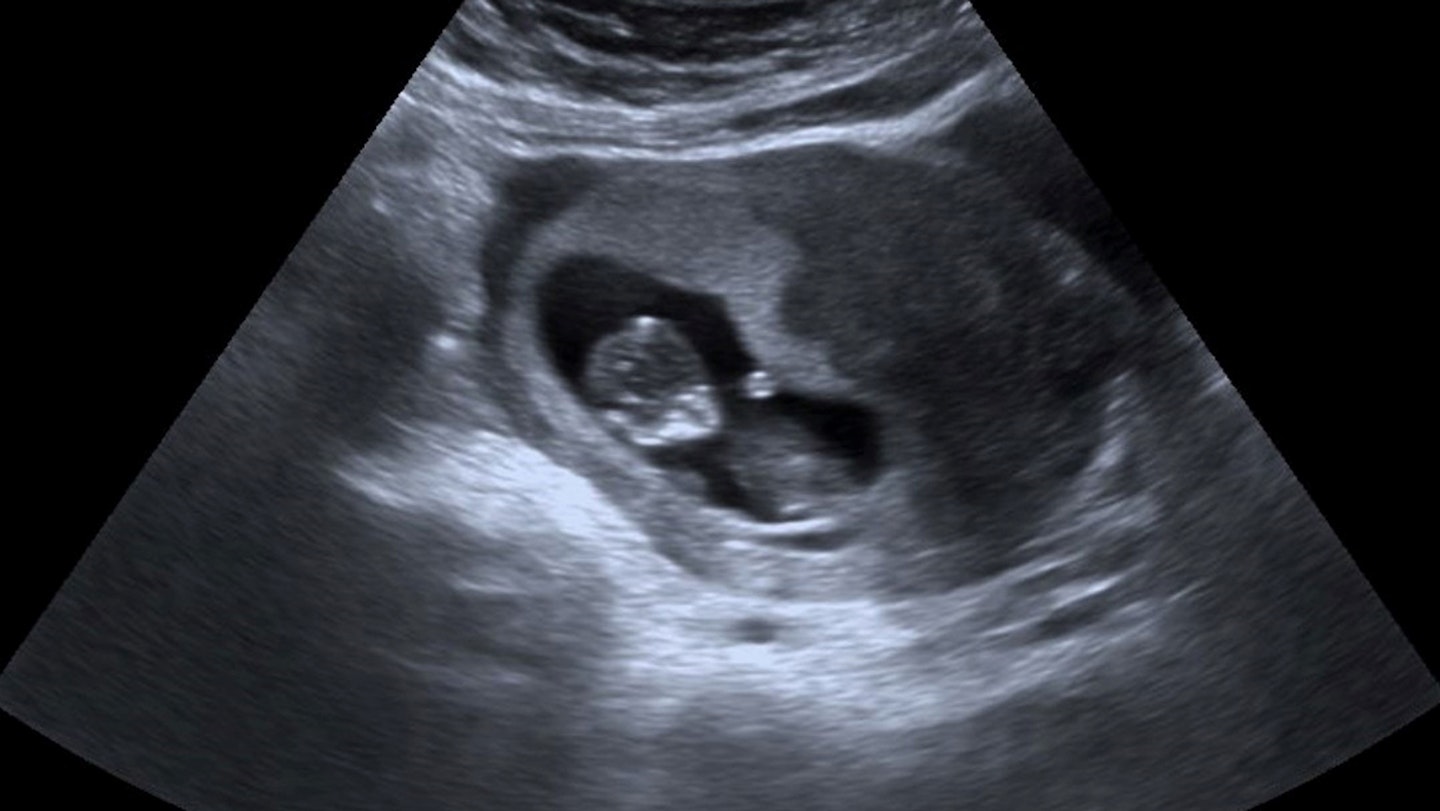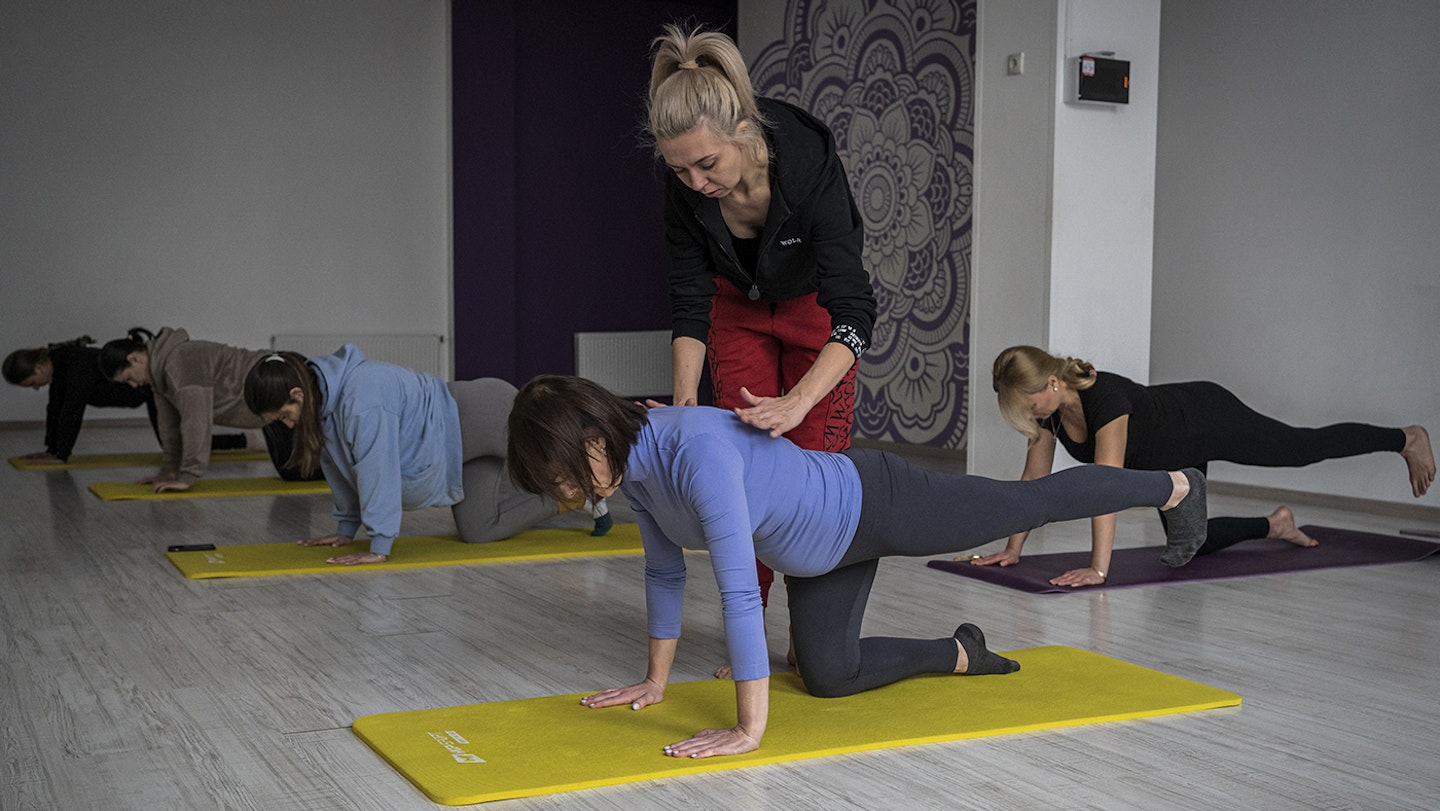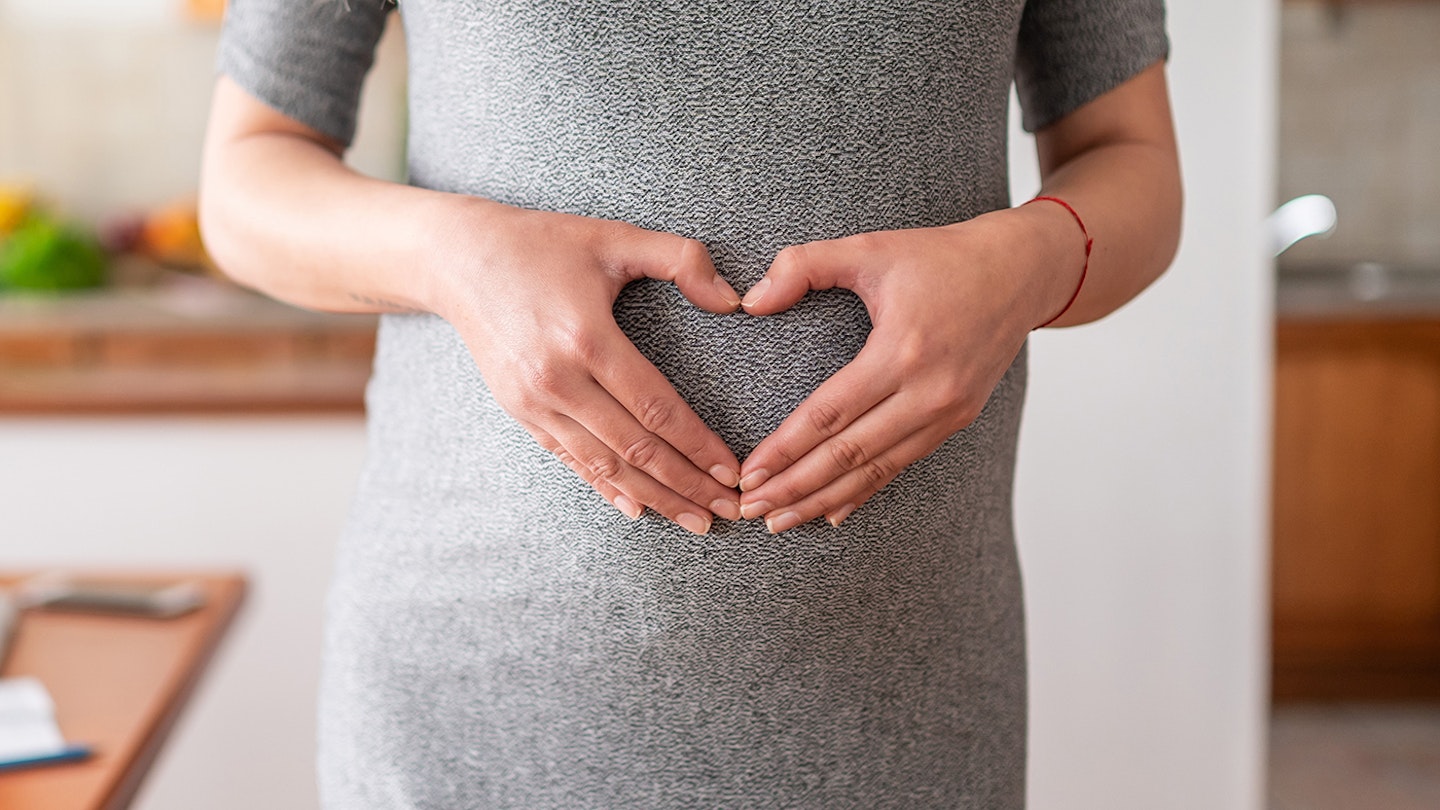Medically reviewed by Consultant Obstetrician and Gynaecologist Ms Ayanthi Gunasekera
You are now 10 weeks pregnant and might be starting to notice signs of a baby bump. You've hopefully had your first midwife appointment too, to discuss everything about your pregnancy journey with your midwife. Here’s what’s happening to you and your baby and what symptoms to expect at ten weeks pregnant.
Your baby at 10 weeks pregnant
"Your baby is about 30 mm long. That is about the size of a small apricot," says Consultant Obstetrician and Gynaecologist Ayanthi Gunasekera. They can also now officially be referred to as a foetus!
What is my baby doing at ten weeks pregnant?
This week, you’ll notice your baby is starting to look more and more like a human. "By the 10th week of pregnancy, or eight weeks after conception, your baby's head has become rounder," says Ayanthi, although they will still have a huge bulge on their forehead as their brain develops.
Bones and cartilage are forming and your baby is starting to get knees and ankles (cute!). "Your baby can now bend his or her elbows." They are still so small you wouldn’t feel any little punches just yet!

Although your little one won’t get pearly whites till they're nearly six months old, this week the teeth will start to form under the gums. Toes and fingers lose their webbing and become longer and the eyelids and external ears continue to develop.
If you’ve got a little boy in there, he’ll already be producing testosterone!
Baby's heart is now fully formed and "the heart is beating extremely quickly at 180bpm – that's about 3 times your heart rate," Ayanthi adds. "The baby will be making jerky movements and baby's movement can be seen on a scan."
10 weeks pregnant ultrasound
You'll be offered two NHS ultrasounds during the duration of your pregnancy. The 12-week scan will be the first time you see your little love and then the 20-week anomaly scan where you may choose to find out your baby's gender.
If you just can't wait, you may choose to book a private scan to get an early peek. If you were to get a scan at ten weeks pregnant, here's what you can expect to see...

What is my body doing at 10 weeks pregnant?
The surge of pregnancy hormones is starting to affect your body – the muscles in your bowel have relaxed and this can often cause constipation during pregnancy. Eating lots of fibre, drinking lots of water and keeping up exercise can help.
It's time to take a look in the mirror as you might notice the first signs of that growing baby bump this week! "Your uterus is expanding to accommodate the growing fetus. This may lead to a noticeable rounding or fullness in your lower abdomen. You may be struggling to do up your jeans" explains Ayanthi.
That said, this totally varies from person to person, so don’t worry if you’re not seeing signs yet – you will do very soon. You can also expect a higher frequency of urination due to the pressure the growing uterus exerts on your bladder.
"Your breasts may continue to undergo changes, becoming more tender and increasing in size. The areolas may darken further," says Ayanthi.
The next physical change you might be noticing is your veins looking more prominent than they were before. These will be more obvious if you have fair skin but can appear on the breasts and abdomen. Again, this is normal and nothing to worry about – it’s your body’s way of getting all that extra blood to your growing foetus.
Other physical changes to look out for are spidery red lines (medically referred to as spider naevi) in your upper arm and chest. These are caused by the pregnancy hormone oestrogen which is working to dilate your blood vessels. They usually disappear post-pregnancy, so try not to worry about them just now. Whilst we’re talking about pregnancy hormones, it’s very common for higher levels of progesterone to cause dry skin or pregnancy acne and spots, so look out for this too.

Ten weeks pregnant symptoms
Morning sickness
"While some women experience relief from morning sickness around this time, others may still be dealing with nausea and vomiting," says Ayanthi. "Morning sickness can persist into the second trimester."
Constipation
This unpleasant side effect is a common one during the first trimester. Steer clear of foods that will make it worse like bread, rice and pasta and focus on packing your diet full of whole grains and fruit.
Mood swings
Be warned, those pregnancy mood swings will be felt most during trimester one and for the final few months of pregnancy. You’ll have a break soon, but for now, get used to feeling rather over-emotional. "Emotional changes are common during pregnancy. Ensure you have a support system in place and communicate openly with your healthcare provider," recommends Ayanthi.
Fatigue
Exercise during pregnancy is important this week, but so is resting. In about a month you’ll be feeling less tired, but for now, listen to your body and get an early night or two.

Heartburn
Another one you’ve probably already experienced by week 10, but in order to prevent pregnancy heartburn, try not to lie down too soon after you finish eating, no matter how tired you may feel!
Vaginal discharge
Another one caused by those pregnancy hormones, expect white, milky discharge as more blood flows to your pelvic area. Another one not to worry about, it’s completely harmless.
Feeling faint or dizzy
One side effect to all this extra blood pumping around your body is that you may feel faint or dizzy. Remember to sit down as soon as you feel light-headed, and to keep your blood sugar levels up by snacking.
Round ligament pain
This is a fancy way of saying ligament pain as your belly expands. This can be dull or sharp but is very normal. The best thing to do to ease round ligament pain is sit down and put your feet up, as it’s caused by the growing weight of your baby.
What to do at 10 weeks pregnant
•Your first scan: As mentioned above, all pregnant women will be booked in for a dating scan between 10-14 weeks pregnant, often referred to as the '12-week scan'. If you haven't got a date already, make sure to get in touch with the hospital to confirm yours is booked in. This scan is the first in-depth look at your growing baby and assesses the early development in the womb.
• Get more vitamin D: As we mentioned above, your baby is growing their teeth this week! If your diet is low in Vitamin D, now’s the time to talk to your doctor about pregnancy vitamins and supplements.
• Keep calm: What with keeping your mum-to-be status a secret for the next few weeks, battling morning sickness, tiredness and all the hormonal changes happening right now, it’s a good time to learn to relax. Exercise is a good way to release those feel-good endorphins, so unless your doctor has told you otherwise, joining a pregnancy yoga class this week could be a good idea.

That said, if those overwhelmed feelings are creeping in when you’re not on the mat, try this simple yoga-style breathing exercise to help keep you stress-free. Repeat the following a few times, then breathe as normal. It will help regulate the oxygen flow in your blood:
Inhale to the count of two; exhale to the count of two. Inhale to the count of two; exhale to the count of three. Inhale to the count of two; exhale to the count of four. Inhale to the count of two; exhale to the count of five.
• Tweak your meals: "If you are having symptoms such as bloating or heartburn, eat small meals regularly and avoid eating late at night," advises Ayanthi. "Avoid spicy or fatty foods."
• Shopping time: "As your body continues to change, you may find it more comfortable to wear maternity clothing. Invest in comfortable and supportive nursing and maternity bras and consider loose-fitting, breathable clothing."
A journalist since 2015, Emily Gilbert is the Features & Reviews Editor for Mother&Baby and has written for the website and previously the magazine for seven years. Emily writes about everything from the top baby products to pregnancy, fertility and maternal mental health. Specialising in product reviews, Emily is the first to know about all the exciting new releases in the parenting industry.
About the expert
Consultant Obstetrician and Gynaecologist Ms Ayanthi Gunasekera is the Medical information lead at London Gynaecology
